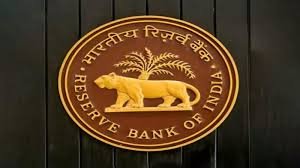RBI Fines Axis Bank and HDFC Bank for Non-Compliance: What You Need to Know
Overview of the News
In a significant regulatory action, the Reserve Bank of India (RBI) has imposed substantial fines on Axis Bank and HDFC Bank for non-compliance with certain regulatory norms. This move underscores the RBI’s ongoing efforts to enforce adherence to banking regulations and ensure the stability of the financial system. The fines are a result of both banks failing to comply with specific directives issued by the central bank, highlighting the importance of rigorous adherence to regulatory guidelines in the banking sector.
Details of the Fines
The RBI has levied a fine of ₹10 crore on Axis Bank for failing to comply with the directions related to the management of frauds and irregularities. The penalty was imposed after a thorough investigation revealed lapses in the bank’s internal controls and reporting mechanisms. Similarly, HDFC Bank has been fined ₹7 crore for not adhering to the RBI’s guidelines concerning the provision of customer service and grievance redressal. Both penalties reflect the RBI’s stance on maintaining high standards of operational compliance within the banking industry.
Implications for the Banking Sector
The imposition of fines on Axis Bank and HDFC Bank serves as a stern reminder to all financial institutions about the necessity of strict compliance with regulatory norms. The RBI’s action is aimed at reinforcing the importance of maintaining robust internal controls and ensuring transparency in banking operations. This step is expected to encourage other banks to reassess their compliance practices and enhance their adherence to regulatory requirements to avoid similar penalties.

Why This News is Important
Strengthening Regulatory Compliance
The RBI’s decision to impose fines on Axis Bank and HDFC Bank highlights the central bank’s commitment to upholding stringent regulatory standards. By penalizing these major banks, the RBI sends a clear message to the financial sector about the importance of adhering to established norms. This enforcement action serves as a catalyst for other banks to review and strengthen their compliance frameworks, ultimately fostering a more disciplined and transparent banking environment.
Ensuring Consumer Protection
The fines also underscore the RBI’s role in safeguarding consumer interests. Non-compliance with regulations, especially those related to customer service and grievance handling, can adversely affect bank customers. The RBI’s action aims to ensure that banks prioritize customer satisfaction and adhere to best practices in their operations, thereby enhancing overall consumer protection within the financial sector.
Promoting Financial Stability
Regulatory compliance is crucial for maintaining financial stability in the banking sector. By penalizing banks for non-compliance, the RBI aims to prevent lapses that could potentially lead to larger systemic issues. This approach helps in ensuring that banks operate within the framework of established guidelines, thereby contributing to the stability and integrity of the financial system.
Historical Context: Background of Banking Regulations
Evolution of Banking Regulations in India
The Reserve Bank of India has historically played a crucial role in regulating and supervising the banking sector to ensure its stability and integrity. Since its inception, the RBI has introduced various regulations and guidelines aimed at enhancing the operational standards of banks. The regulatory framework has evolved over time to address emerging challenges and to promote transparency, accountability, and consumer protection in the banking industry.
Past Regulatory Actions
Previous instances of regulatory actions by the RBI include penalties imposed on banks for similar non-compliance issues. These actions have ranged from fines to directives for corrective measures, aimed at addressing lapses and reinforcing compliance. The RBI’s consistent enforcement of regulations demonstrates its commitment to maintaining high standards within the banking sector and ensuring that banks operate in a manner that supports the overall stability of the financial system.
Key Takeaways from RBI’s Fines on Axis Bank and HDFC Bank
| Serial Number | Key Takeaway |
|---|---|
| 1 | The RBI fined Axis Bank ₹10 crore for non-compliance with fraud management directives. |
| 2 | HDFC Bank was fined ₹7 crore for failing to adhere to customer service and grievance handling guidelines. |
| 3 | The fines reflect the RBI’s emphasis on enforcing strict regulatory compliance within the banking sector. |
| 4 | This regulatory action aims to reinforce the importance of maintaining robust internal controls and transparency. |
| 5 | The penalties serve as a reminder for all banks to review and strengthen their compliance practices to avoid similar actions. |
Important FAQs for Students from this News
1. Why did the RBI impose fines on Axis Bank and HDFC Bank?
The RBI imposed fines on Axis Bank and HDFC Bank for non-compliance with regulatory norms related to fraud management and customer service. The fines were a result of lapses in internal controls and failure to adhere to customer grievance handling guidelines.
2. What were the amounts of the fines imposed on Axis Bank and HDFC Bank?
Axis Bank was fined ₹10 crore, while HDFC Bank received a penalty of ₹7 crore.
3. What are the implications of these fines for the banking sector?
The fines highlight the importance of strict adherence to regulatory guidelines and encourage other banks to review and strengthen their compliance practices. This regulatory action aims to enhance transparency and operational standards within the financial sector.
4. How does the RBI enforce compliance in the banking sector?
The RBI enforces compliance through regular inspections, audits, and the issuance of directives. Penalties, such as fines, are imposed when banks fail to meet regulatory standards or adhere to guidelines.
5. What historical actions has the RBI taken regarding banking compliance?
The RBI has a history of imposing fines and issuing directives to banks for non-compliance with regulatory norms. These actions are part of the RBI’s efforts to maintain the stability and integrity of the financial system.
Some Important Current Affairs Links


